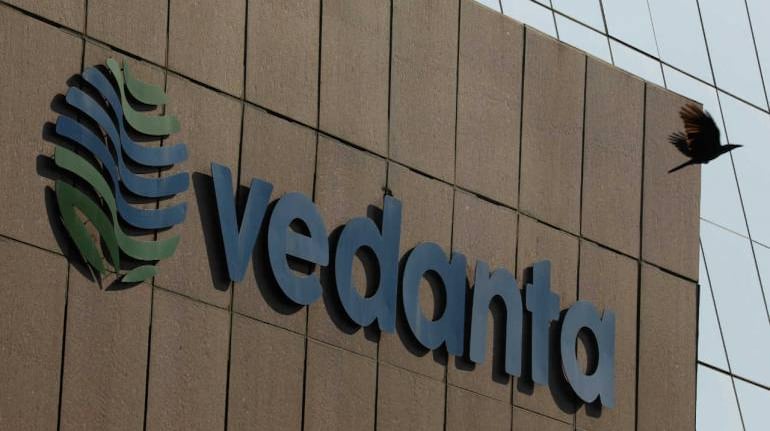



October 9 is the final day of the reverse book building process in which public shareholders can tender the shares of Vedanta as the company readies to get delisted from Indian bourses.
The share tendering process was tepid till October 8 but it gained momentum on the final day. The reverse book-building process for public shareholders to tender their shares started on October 5 and will conclude on October 9.
The meeting condition is - bids submitted should be sufficient to take promoter shareholding to 90 percent, at least.
As per BSE data, a total 1,69,73,90,047 shares held by public shareholders are there for tendering, out of which, 134 crore shares should be tendered for the delisting process to take place.
As per the latest available data, 137.65 crore shares have been tendered by public shareholders so far.
Yash Gupta, Equity Research Associate, Angel Broking, believes that it would be prudent for retail shareholders to participate in the reverse book building process.
Why is share tendering tepid?
Analysts and brokerages highlight that the tepid share tendering by public shareholders may be due to the fact that the offer price is well below the fair price while the company has good growth prospects in the coming quarters.
The floor price for share tendering has been set at Rs 87.25. Vedanta shares closed at Rs 117.60, down 4.85 percent, on October 8 on BSE.
Vikas Jain, Senior Research Analyst at Reliance Securities said that the floor price determined is at a steep discount to the current market price and as it is through reverse book building, investors should bid the shares at 20-25 percent higher from the current price as it will be difficult to achieve at the desired offered price mentioned.
"From the initial announcement of delisting in May 2020 the stock has moved up by 50 percent which indicates there is a lot of value for the business and the global metal prices are also in upswing recovering from their lows," Jain pointed out.
"The outstanding minority shareholders are almost 50 percent and large institutional investors would not agree and there could be a higher offer from the acquirer to delist the shares from stock exchanges," Jain added.
Vineeta Sharma, Head of Research, Narnolia Financial Advisors highlighted that the indicative floor price of Vedanta de-listing is way below its fair value and also much below its current market price.
Sharma's current fair value estimate for the stock is Rs 156.
KRChoksey Research in a report said it expects Vedanta’s revenue and PAT to grow at a CAGR of 1.3 percent and 4.3 percent, respectively, over FY20-22E.
"We apply an EV/EBITDA multiple of 4.3 times on FY22E EBITDA of Rs 23.378.70 crore to arrive at a target price of Rs 168, an upside potential of 36.5 percent. Hence, we think shareholders should offer their shares at least 1.9 times the floor price fixed by the company," said KRChoksey.
KRChoksey underscored that taking into consideration the prospects that the company has to offer in the future with the completion of the expansion in Zinc capacity, cost reduction in aluminum and ramp-up in the oil and gas segment, the company holds good prospects in earnings growth from FY22 onwards.
"The company will also see pent-up demand post resumption of economic activity with abating of COVID-19 pandemic. The recent recovery in metal prices gives a better picture of Q2FY21 result for the company," KRChoksey said.
"We justify our target price against the floor price of Rs 87.5 in the light that company had written off Rs 17,132 crore on account of impairment of assets in oil and gas, copper and iron ore businesses in Q4FY20, which resulted in the reduction of book value to Rs 89 from the nominal book value of Rs 147. Moreover, contrary to the dividend distribution policy, the company did not distribute the dividend (Rs 12.18) from Hindustan Zinc to shareholders," said KRChoksey.
The promoter group will have to make an announcement regarding the success or failure of the delisting offer, along with the final exit price, within 5 working days from the closure of the bid period, which is October 16, 2020.
If delisting is successful, promoters will have to pay the amount within 10 days to minority shareholders who have subscribed to the offer. The remaining shareholders will have up to one year to tender their shares at exit prices or new offers by the promoter.
Disclaimer: The views and investment tips expressed by investment experts on Moneycontrol.com are their own and not that of the website or its management. Moneycontrol.com advises users to check with certified experts before taking any investment decisions.
Also Watch | Explained: What happens to your investments when a company delists
Discover the latest Business News, Sensex, and Nifty updates. Obtain Personal Finance insights, tax queries, and expert opinions on Moneycontrol or download the Moneycontrol App to stay updated!
Find the best of Al News in one place, specially curated for you every weekend.
Stay on top of the latest tech trends and biggest startup news.